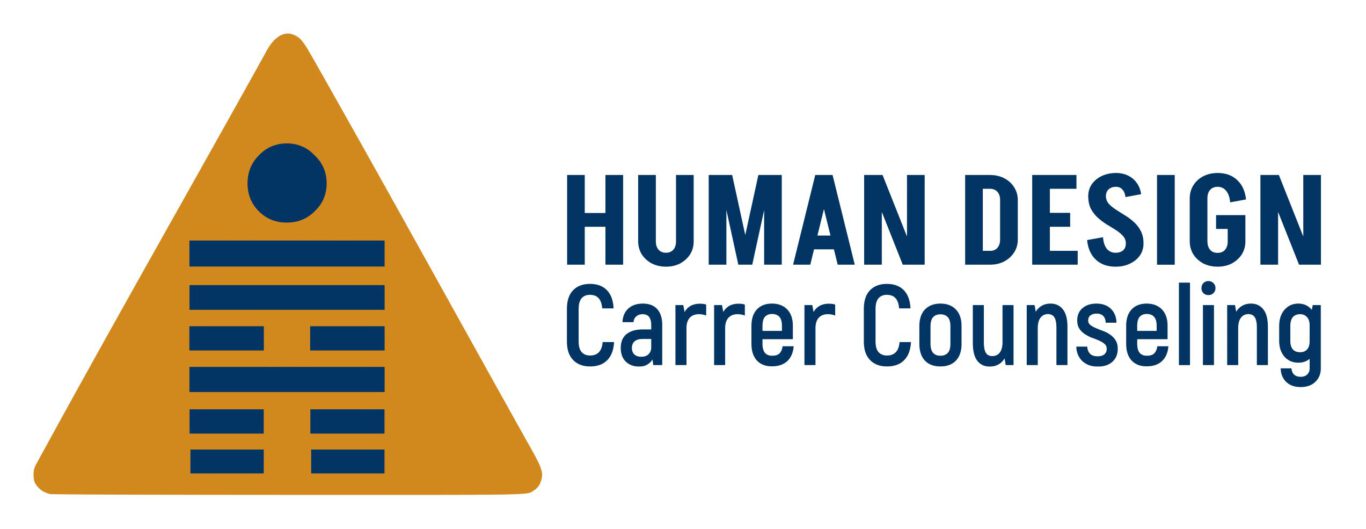Your interest in Human Design Critique
It makes sense to take a critical look at the topic of Human Design. Perhaps in your search for answers, for ways to better understand your (professional) life, you’ve come across the concept of Human Design. It promises to provide insights into your personality and help you better navigate your life and career path. But can you trust something based on mysticism and traditional teachings? Let’s take a look together at some critical aspects of Human Design.
Five criticisms of the Human Design System
Human Design Critique 1: Human Design has no scientific background
As with most esoteric or spiritual systems, there is little to no empirical evidence or scientific studies to support the claims of Human Design.
Nevertheless, behavioral studies have already been undertaken to investigate the effectiveness of Human Design, e.g. in team experiments (penta-experiments) by the later founders of 64keys – the Ebhart couple together with the University of Vienna (Dr. Thomas Schneidhofer).
In penta-experiments (team experiments) different teams were given tasks to solve a complex task (crisis situation). The teams, which were deliberately put together according to certain activations, were observed. Thus, there were teams where good cooperation was expected and teams where less good cooperation was expected. In summary, the expected results could be confirmed. Human design charts of several people could be used deliberately to assemble successful teams or less successful teams.
Such interesting results on team behavior can be a reason for individuals and companies to deal with the Human Design Matrix and to implement their own measures.
Human Design Critique 2: “Channeling” is esoteric nonsense
Ra Uru Hu, born Robert Allan Krakower, was the founder and ambassador of the Human Design System. Ra devoted 25 years of his life to developing and teaching the system around the world until he died in 2011. Ra received the message through the process of channeling. He received the information about the Human Design System during a mystical experience in January 1987 on the island of Ibiza in Spain. During this experience, he was taught for eight days by a “voice” that conveyed to him the details and mechanisms of the Human Design System.
There is no scientifically accepted proof that channeling actually works. However, it is not uncommon for creative processes to occur in a state of unconsciousness. Every now and then, book authors report such a phenomenon. “I had the feeling that I was not writing this text myself, but that it was somehow flowing to me”.
There are also musicians who claim to have received their creative ideas or pieces of music through a kind of “channeling.” They often describe moments when music or song lyrics seem to “flow” to them as if they came from an outside or higher source. John Lennon described writing “Across the Universe” as receiving a “cosmic gift.” Paul McCartney said the melody of “Yesterday” appeared to him in a dream and described this as a “visitation” of the melody. Artists also often feel that their work is inspired or even dictated by a higher or external source.
The term “channeling” is rarely used in this context. Automatic writing, intuitive work, or trance communication are other definitions. At the end of the day, channeling is probably not as uncanny and rare as we make it out to be. We prefer to understand logically how something works. In this context, logistics is no different than what humans themselves have invented.
Human Design Critique 3: The complexity of human design can lead to faulty advice
Human Design is definitely a complex system that you need a lot of time to understand in depth. With all its components and aspects, Human Design requires a lot of learning time and familiarization.
Because of its complexity, it can be difficult to do a comprehensive analysis and give practical advice. Especially if you study the matrix in depth, you will find that some statements contradict or cancel each other out. In such cases, it is important to understand exactly what a particular aspect is trying to say. For example, a generator (doer) may also have leadership aspects, although this type generally has little interest in leadership. The key here is to interpret these aspects correctly and also to experiment with them.
It can be useful to consult an experienced Human Design Consultant, especially if the statements you get from a Human Design Analysis seem unclear or contradictory to you. Otherwise, you may follow incorrect or confusing advice.
Also, there is a danger that you will rely too much on the Human Design System, disregarding your own intuition and personal experience. Think of Human Design more as a personal experiment or project. Human Design itself advises you to focus on your body feeling, especially when making decisions. It is always important to listen to your inner wisdom rather than blindly trusting a system, no matter how complex and fascinating it may be.
Human Design Critique 4: Human Design creates pigeonhole thinking through typification
As a fourth Human Design Critique, we consider the danger of pigeonholing that the Human Design System can bring. Human Design divides people into five different Human Design Types, which can lead you to pigeonhole yourself or others into preconceived categories. The Human Design Type is readily analyzed at the beginning after discovering this matrix. The types are one of the last aspects that Ra Uru Hu interprets from all Human Design information. But even without the types, Human Design is a powerful tool.
Focusing only on the typology can lead to a narrow and limited picture of oneself and others. It can give the impression that our personality, behavior and potential are fixed and unchangeable, which is not the reality.
Every person is unique and constantly evolving. It is important to remember that no categorization or typification can fully capture the diversity and complexity of human life. Human Design should be viewed as a tool that can help people better understand themselves, not as another pigeonhole that makes it easier to categorize themselves and others.
Human Design Critique 5: An analysis of potential using birth data is not a valid personality test
Personality tests based, for example, on the Myers-Briggs Type Indicator, the Big Five Model or the Hogan Personality Inventory (HPI) are usually based on answering specific sets of questions. Often, the individually achieved results are compared with statistical averages of the population. Statements are then made on the basis of these deviations. The significance of the results depends heavily on the quality of the methodology used and the nature of the questions.
A person’s answers to questions always reflect cultural imprints, past experiences stored in our brain, and current state of mind. In contrast, the analysis of birth data is not a scientifically accepted method for making valid statements about a person’s personality traits. Human Design assumes that every person has certain personality traits, talents and potentials from birth, which are, so to speak, inherent in him or her. This is a different approach from questionnaire tests, which, by the way, is also very beneficial for children or their parents. Even if this approach is not in line with science, we should ask ourselves the questions:
- Is science perhaps not yet in a position to describe why the results of a potential analysis are so often accurate and therefore so well received?
- Are the positive findings from practice not proof enough to call a system helpful?
- Do millennia-old philosophies that have stood the test of time in practice need to stand up to scientific scrutiny when science is comparatively in its infancy?
Conclusion
In summary, I find it enriching to look at one’s own personality from different angles. Personally, I take something away from almost every personality model, although I must admit that Human Design appealed to me a lot. Otherwise, I probably wouldn’t be so intensively involved with Human Design and also helping other people to get to know themselves better. In the context of my Human Design Readings I can say that the statements of Human Design have nothing to do with arbitrariness, nonsense or too sweeping statements (as astrology is often accused of).
Is the Human Design critique now justified? I always find it helpful to take a critical look at a powerful subject. I hope that with this article I have been able to give you a better insight into the criticisms of Human Design. Are you ready to embark on your own personal Human Design project? I wish you much joy in doing so!
Because the working world needs your uniqueness: Get clarity about your vocation with Human Design now. Click on the button below and order your written Human Design Analysis!
FAQ: Questions about Human Design Critique
Is Human Design scientifically based?
No, Human Design is not based on scientific knowledge. It combines elements of various esoteric and traditional concepts. However, there is some behavioral research that could support its effectiveness in certain contexts.
What does "channeling" mean in the context of Human Design?
Channeling refers to the process by which Ra Uru Hu (Robert Allan Krakower) received information about the Human Design System through a “voice” during a mystical experience.
Are there people who have had negative experiences through the Human Design System?
Thomas ist Inhaber der Human Design Berufsberatung und von TW Coaching & Consulting. Er ist Systemischer Coach, Emotionscoach und Human Design Experte. Nach 20 Jahren Berufserfahrung in der Wirtschaft widmet er sich heute in seiner Coaching-Tätigkeit psychologischen und spirituellen Themen rund um die Berufung und Persönlichkeitsentwicklung

